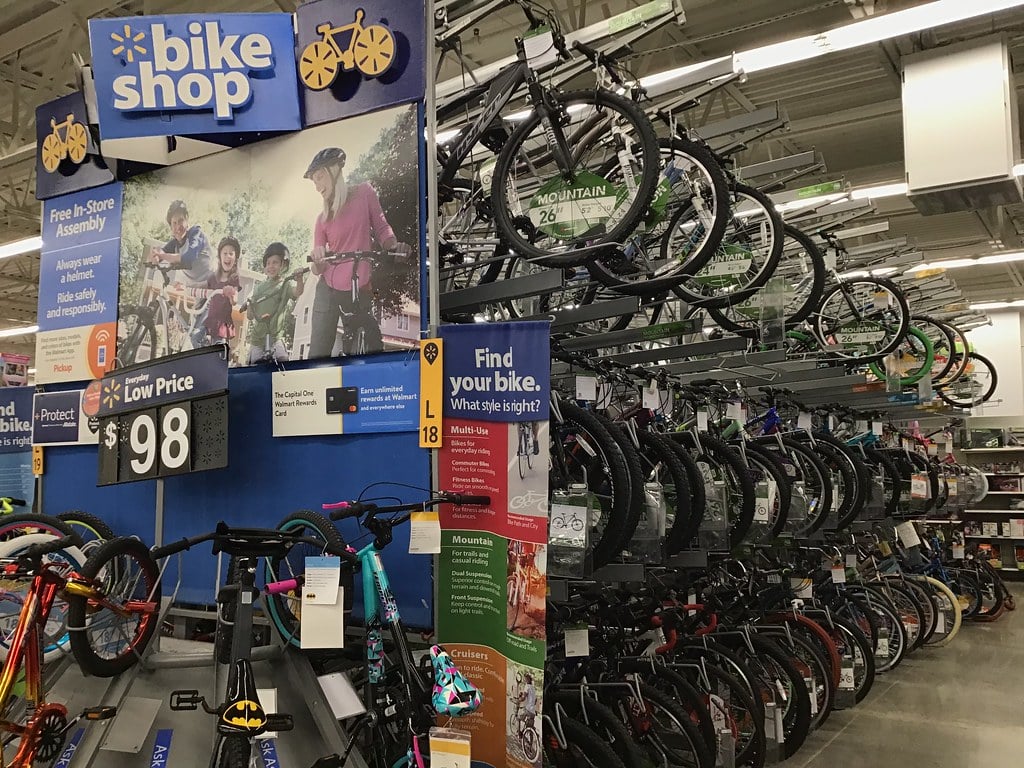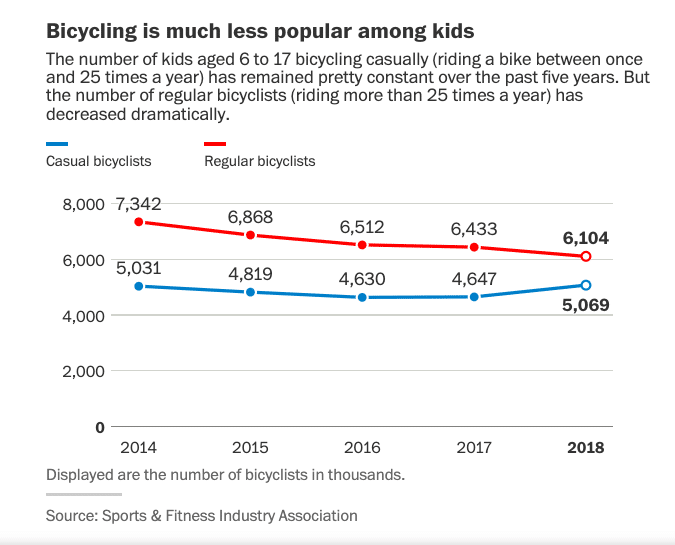
Sales are saying it all that fewer adults are buying bicycles for their kids, so fewer kids are riding them these days. Riding a bicycle was often one of every kid’s favorite activities when the weather finally got nice and warm. People also can’t forget their first experience learning how to ride a bicycle in an open parking lot or their own driveway.
Market research shows that fewer kids are riding bikes, even as industry prices continue to rise for biking equipment. This is in large part due to the Trump administration’s tariffs on Chinese-made goods. The research also shows that the number of children ages 6 to 17 who rode bicycles regularly decreased by more than a million from 2014 to 2018. These sales include both leisure riding around the neighborhood and more competitive biking.
Tariff prices + less interest = worry for bicycle industry insiders

From 2018 to 2019 alone, children’s bicycle sales decreased 7 percent in dollars and 7.5 percent in bikes sold. This is a drop serious enough to make retailers adjust their prices to make up for the lower demand. Additionally, kids are simply just less interested in bike-riding these days.
RELATED: 30 Bikers Line Up At Girl’s Lemonade Stand After Mom Helps Injured Riders In Crash
The American bicycling industry is now being forced to prepare for things to get worse from here. As mentioned previously, the Trump administration has enforced a 25 percent tariff on Chinese-made goods. Because this so greatly affects every part of how bikes are made, CEOs of bike companies plan to testify on this and how it negatively impacts those companies. “CEOs of bike companies have and will testify in front of the U.S. Trade Representative about these tariffs: that bike prices will go up, and that means fewer kids will ride bikes,” says Tim Blumenthal, president of People for Bikes.
The market research shows a consistent drop through the years

Blumenthal continues, “The consequences of kids riding bikes will go well beyond the number of kids who ride. In the mass market, tariffs, if they continue for a long time, are likely to have a big effect on the kids market.”

In conclusion, coupled with less interested kids and higher tariff prices, this could mean increase worries for industry insiders.
